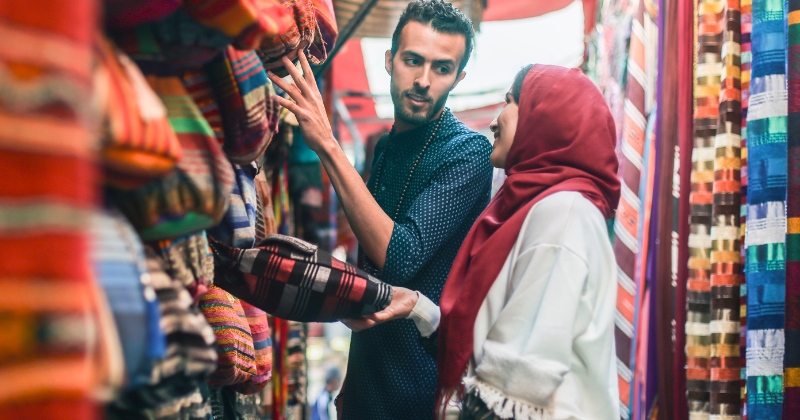International Women’s Day (IWD) 2023 marks an important moment in the journey to gender equality. We are now at a stage where addressing ‘toxic’ and ‘patriarchal’ masculinities as a critical step towards women’s empowerment is becoming prominent in development thinking and practice.
It is imperative to recognise that men and boys need to be engaged in different ways compared to women and girls in order to achieve this – as demonstrated in our recent evaluation of UN Women’s Men and Women for gender equality programme (MW4GE).
Switching from an equality lens (men and women experiencing the same outcomes) to an equity lens, means considering how different outcomes for men and boys can influence gender equality. By doing this, MW4GE demonstrated that men and boys can be seen as allies accountable to feminist movements.

Equality vs equity – what does this mean for engaging men and boys for women’s empowerment?
Embracing equity (this year’s theme for IWD) means ensuring we apply context-specific tools and opportunities to achieve equal outcomes.
Taking an equitable approach to programming for gender equality with men and boys as allies, is not about providing the same type of support to men and boys as to women. Instead it allows for gender identities other than ‘women’ to become part of the system change towards equality, not despite of their gender identity but because of it.
UN Women’s MW4GE has adopted the this approach in Jordan, Lebanon, Egypt, Morocco, Tunisia and Palestine. The programme is seeking to build communities where men and women in Arab States’ societies are able to exercise their rights and opportunities equally by reducing patriarchal masculinities.
Read the MW4GE learning brief: lessons from our evaluation
What does reducing patriarchal masculinities look like in practice?
Align interventions to be accountable to feminist movements
A major area of discussion across MW4GE was how intervention measures for men and boys can remain accountable to women’s and feminist movements.
Our evaluation unpacked a promising example from MW4GE in Lebanon. Here, the UN Women Country Office demonstrated a unique mediation function across an emerging feminist movement following political shifts in 2019, which were then energised after civil society discussions following the Beirut explosion in 2020.
As discussions expanded, the UN Women office used the opportunity to unify the voices of feminist groups, supported the production of a Feminist Charter of Demands and developed a gender responsive reform plan. As such, MW4GE also realigned its priorities accordingly and in so doing was held ‘to account’ to the national feminist movement.
This accountability also allowed MW4GE to reduce potential for both feminist and patriarchal ‘backlash’ when undertaking its activities.
Embrace diverse understandings of gender identity
An equity lens also facilitates the understanding that men and boys have diverse personal experiences of gender identity that can either promote or reduce the likelihood of equality being achieved.
Therefore, programming that recognised the specific and varied knowledge, behaviours and attitudes of men and boys in each country was a fundamental part the picture. Our evaluation found that men’s attitudes on gender equality shifted by as much as 48% and 41% in Morocco and Palestine respectively as a result of targeted norms programming (determined using available Gender Equitable Men’s Scale (GEMS) data).
Overall, men gained an understanding of their own prejudices and realised that violence against women could include verbal insults, child marriage and female genital mutilation/cutting. Many men also came to understand the impact of children witnessing violence and how cycles of violence were repeated within families.
As a result, both women and men became co-beneficiaries of MW4GE, as did families more generally.
Embed the role of men and boys in development programming
Changes at a societal level can also be inferred as a result of conscious programming on patriarchal masculinities. Our evaluation looked further afield at female labour force participation in the formal economy at scale – which is a major issue in the Middle East and North African region where women represented only 18% of the formal labour force in 2021.
MW4GE is beginning to understand that encouraging men to support their partners, wives and female family members in entering the formal economy can not only improve household income, but also contribute to economic gains at the national level.
Ultimately MW4GE shows that we can, and should, be thinking ‘big picture’ about the important ramifications of engaging men and boys appropriately in development initiatives – while, critically, remaining to accountable national feminist and women’s movements.

